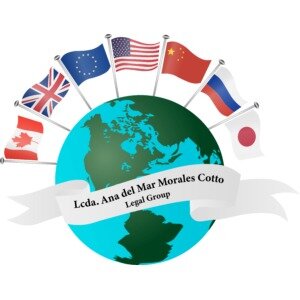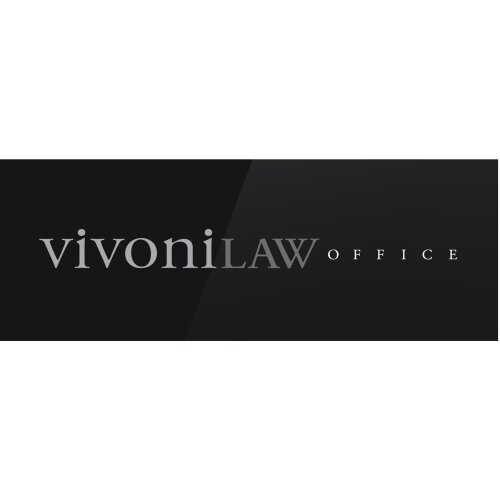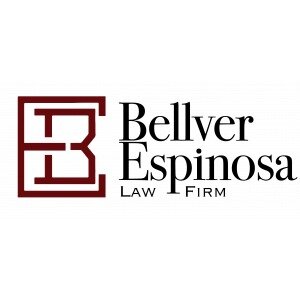Best Water Law Lawyers in Puerto Rico
Share your needs with us, get contacted by law firms.
Free. Takes 2 min.
Or refine your search by selecting a city:
List of the best lawyers in Puerto Rico
About Water Law in Puerto Rico
Water Law in Puerto Rico encompasses the legal framework that governs the use, distribution, management, and protection of the island's water resources. This field of law is shaped by a blend of local statutes, regulations, case law, as well as the influence of federal environmental laws. The unique geography and hydrological features of Puerto Rico make water resources especially important for residents, businesses, and the environment. Issues often involve groundwater, rivers, lakes, public reservoirs, water rights, and water quality regulations.
Why You May Need a Lawyer
Individuals and businesses may require legal assistance with Water Law in a variety of situations. Some common examples include:
- Disputes over water rights between neighbors, communities, or agricultural users
- Compliance with environmental and health regulations governing water use and waste disposal
- Challenging or responding to government actions or sanctions related to water usage
- Securing permits for wells, irrigation, or water extraction
- Resolving land use disputes that involve water access or drainage issues
- Addressing contamination of groundwater or surface water that affects private or public interests
- Understanding obligations and rights connected to communal or public water systems
Because Water Law combines complex legal, scientific, and regulatory elements, obtaining professional legal advice can help safeguard your interests, ensure compliance, and resolve conflicts effectively.
Local Laws Overview
Puerto Rico's Water Law is governed by a combination of local statutes such as the Ley de Aguas de Puerto Rico (Puerto Rico Water Act), environmental codes, and relevant sections of the Civil Code. The Puerto Rico Aqueduct and Sewer Authority (PRASA, also known as AAA) manages the public water supply and distribution, while the Department of Natural and Environmental Resources (DRNA) oversees water resource protection and permitting. Key aspects of local law include:
- Regulations on the extraction and allocation of groundwater and surface water resources
- Permitting for new wells, reservoirs, or significant water projects
- Standards for water quality and pollution controls
- Rules for waste water treatment and disposal
- Management of public vs private water rights
- Protection of environmentally sensitive or critical water bodies
Furthermore, federal laws such as the Clean Water Act also apply, particularly regarding pollution, wetlands, and endangered species impacts.
Frequently Asked Questions
What is considered public water in Puerto Rico?
Public water refers to bodies of water owned and regulated by the government, including most rivers, lakes, streams, and aquifers. These are managed for public benefit, and individual use is usually subject to regulations and permits.
Do I need a permit to extract water from a river or well?
Yes, most extractions from public rivers and wells require a permit from the Department of Natural and Environmental Resources (DRNA). Violation of permit requirements can result in fines and other penalties.
Who manages the public water supply in Puerto Rico?
The Puerto Rico Aqueduct and Sewer Authority (PRASA or AAA) is responsible for supplying potable water to most municipalities, as well as managing sewer systems.
What can I do if I suspect water contamination near my property?
You should contact the DRNA or PRASA to file a report. Consulting with a Water Law attorney is also advisable to protect your rights and explore remedies or compensation.
Can private property owners have exclusive water rights?
Generally, water rights in Puerto Rico are not absolute. Even on private land, water use is subject to regulation, and exclusive rights are limited by public interest and environmental laws.
How are disputes over water rights resolved?
Disputes are often handled through administrative agencies such as the DRNA, but can escalate to courts. Mediation or negotiation may also be used to reach agreements between parties.
What environmental protections are in place for water resources?
Both local and federal regulations mandate protection of water quality, regulate industrial discharges, and restrict harmful development in sensitive areas. Violations can result in civil or criminal penalties.
Who should I contact for a water use permit?
Permits for water extraction, use, or diversion are generally administered by the DRNA. Depending on the project, additional municipal or federal permits may also be necessary.
Is rainwater harvesting permitted?
Rainwater harvesting for private, non-commercial use is generally allowed, but large-scale or commercial systems may require compliance with building and environmental codes.
What are the penalties for illegal water use or pollution?
Penalties can include fines, removal or modification of unauthorized installations, restoration of environmental damage, and in serious cases, criminal charges.
Additional Resources
Should you need more information or support regarding Water Law in Puerto Rico, consider the following resources:
- Puerto Rico Department of Natural and Environmental Resources (DRNA): The primary regulatory body for water resource management and permitting.
- Puerto Rico Aqueduct and Sewer Authority (PRASA or AAA): Responsible for public water and wastewater services.
- Puerto Rico Environmental Protection Agency (EPA) Office: Provides federal oversight and guidance on environmental and water laws.
- Legal Aid Societies and Law Clinics: Offer legal support for individuals or communities facing water law issues.
- Local Environmental Advocacy Organizations: Groups focused on the protection and sustainable use of Puerto Rico’s water resources.
Next Steps
If you believe that you need legal assistance related to Water Law in Puerto Rico, consider the following steps:
- Document the issue with as much detail as possible, including any notices, permits, or evidence of the problem.
- Reach out to the appropriate government agency for clarification or to file an initial report if needed.
- Consult with a qualified attorney who specializes in Water Law or environmental law matters. Look for reputable professionals with experience in Puerto Rican law.
- Prepare for your consultation by gathering all documentation and making a list of your questions and goals.
- Discuss possible strategies, legal options, and solutions with your attorney, and weigh the potential costs and outcomes.
Taking proactive steps can help ensure you understand your rights, avoid costly mistakes, and resolve water-related disputes effectively.
Lawzana helps you find the best lawyers and law firms in Puerto Rico through a curated and pre-screened list of qualified legal professionals. Our platform offers rankings and detailed profiles of attorneys and law firms, allowing you to compare based on practice areas, including Water Law, experience, and client feedback.
Each profile includes a description of the firm's areas of practice, client reviews, team members and partners, year of establishment, spoken languages, office locations, contact information, social media presence, and any published articles or resources. Most firms on our platform speak English and are experienced in both local and international legal matters.
Get a quote from top-rated law firms in Puerto Rico — quickly, securely, and without unnecessary hassle.
Disclaimer:
The information provided on this page is for general informational purposes only and does not constitute legal advice. While we strive to ensure the accuracy and relevance of the content, legal information may change over time, and interpretations of the law can vary. You should always consult with a qualified legal professional for advice specific to your situation.
We disclaim all liability for actions taken or not taken based on the content of this page. If you believe any information is incorrect or outdated, please contact us, and we will review and update it where appropriate.
Browse water law law firms by city in Puerto Rico
Refine your search by selecting a city.












